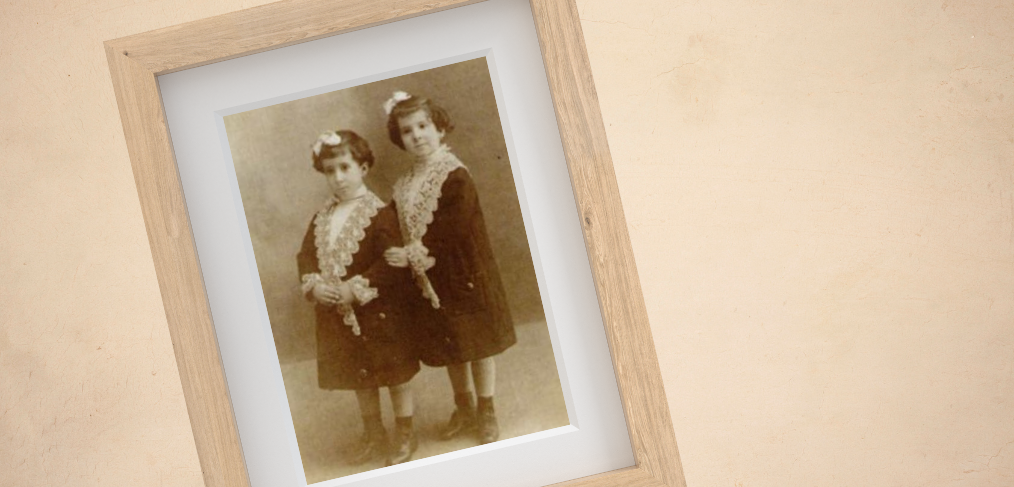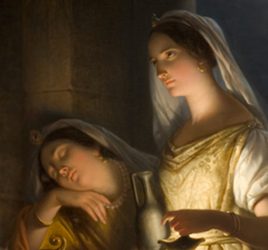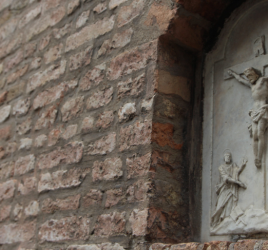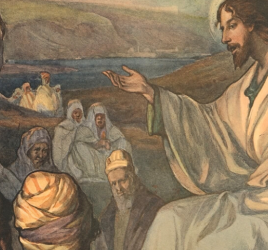
“Next year, it’s my turn.”: Facing Sorrow as a Christian Family
Many have heard the expression “a parent should never have to outlive their child.” The loss of a child is one of the most painful experiences of death and grief on earth. And the Escriva family were deeply aware of this suffering.
On July 10, 1912, St. Josemaria Escriva’s sister, Lolita, died aged five. Two years earlier, in 1910, his sister Rosario died at nine months of age. And, in 1913, his sister Asunción died at the age of eight.
Troubled by all this misfortune, 11 year old St. Josemaria told his mother, not realizing the pain it would cause her, “Next year it’s my turn.” He remembered her consoling assurance, “Don’t worry. I offered you to our Lady, and she will take care of you.”
St. Josemaria personally witnessed how his parents, José Escrivá and Maria Dolores Albás Escrivá, bore the deaths of their daughters with the same whole-hearted fortitude, the same Christian acceptance of God’s will, as they had welcomed their birth.
Without denying the suffering and grief of death, what do the Escriva’s teach us today about facing sorrow as a Christian Family?
SEEK UNITY & VIRTUE
St. Josemaria was born in Barbastro, a small town in Spain, on January 9, 1902. His father, well known in town, was a young textile merchant with strong Christian principles who enjoyed spending time with his wife and children. His mother was entirely devoted to her family and to raising their children, Carmen, Josemaria, Asunción (nicknamed Chon), Lolita, Rosario, and Santiago.
The Escriva family was always very united. From his parents, St. Josemaria learned virtues, like hard work and order. As he would recall later on, “Our Lord prepared things so that my life was ordinary and commonplace, with nothing particularly notable. He arranged it so that I was born into a Christian home, as homes usually are in my country, with exemplary parents who lived and practiced their faith.”
PRAY TOGETHER & FOR EACH OTHER
The parents of St. Josemaria were devout Catholics who prayed to God with great faith for their children, especially as they faced many setbacks and sorrows as a family. They also taught him to pray with a simple piety, without affectation.
“I remember those happy days of my childhood,” St. Josemaria reminisced: “My mother, my father, my sisters and I always went together to Mass. My father used to give us the alms that we would bring to a disabled man who leaned against the wall of the bishop’s residence. After that, I would run ahead to get holy water to give to my family (He is referring here to the custom of dipping one’s hand in the holy water and then passing it along to friends or relatives who follow behind by dabbing their fingers with it). Then, Holy Mass. Afterwards, every Sunday, in the chapel of the Christ of the Miracles, we used to pray the Creed.”
As an adult, St. Josemaria shared that, “Even now, I recite every morning and evening the prayers that my mother taught me.”
FOSTER BRIGHT & CHEERFUL HOMES
Around the same time as the death of his daughter, the career of José Escrivá suffered an abrupt turn due to the unjust actions of one of his partners. The family’s savings were lost, although St. Josemaria’s parents attempted to keep this from the children.
Years later St. Josemaria found a supernatural explanation for these painful events: “I saw my father as the personification of Job. He lost three daughters, one after the other in consecutive years, and then lost his fortune. And life went on. My father reacted heroically, then he fell ill, as I realize now, from undergoing such great misfortunes and worries. He was left with two children and my mother. And he found the strength to bring us forward, not sparing himself any humiliation to provide us with a decent life. He might have remained in a position that was very comfortable for those times, if he had not been a Christian and a gentleman, as they say in my country. I can’t remember a harsh gesture from him. I recall him as always calm, with a cheerful look. He died worn out, when he was only 57. He died exhausted, but he was always smiling.”
St. Josemaria recalled his own family’s experience when he later encouraged Christian parents to make their homes into bright and cheerful ones. “Marriage,” he said, “is a divine pathway, a vocation, and this has many consequences for personal holiness and for apostolate.” The first and principal path of sanctification and apostolate is the family. “Christian couples should be aware that they are called to sanctify themselves and to sanctify others, that they are called to be apostles and that their first apostolate is in their home. They should understand that founding a family, educating their children, and exercising a Christian influence in society, is a supernatural task. The effectiveness and the success of their life — their happiness — depend to a great extent on their awareness of their specific mission.”
Photo: Lolita (left) and Asuncion (right) Escriva when they were about three and five years old.




